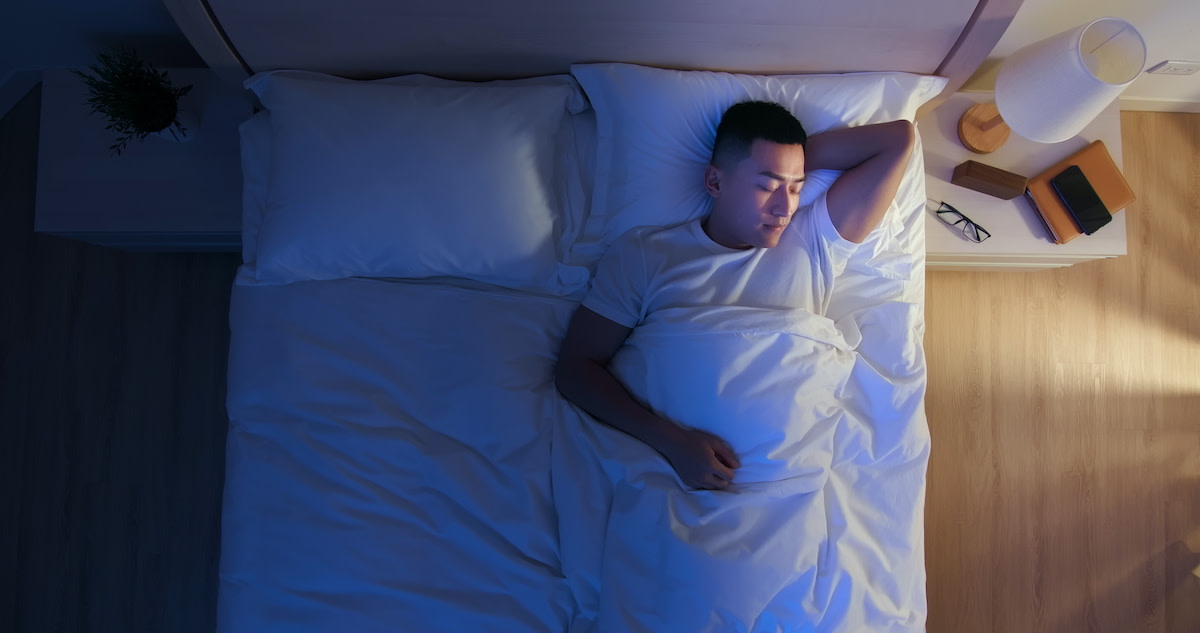How to Stop Snoring: 7 Ways to Reduce Snoring
Written by MasterClass
Last updated: Jun 7, 2021 • 4 min read
Snoring is a common occurrence that can affect people of every age. While some snoring is light and occasional, some instances of snoring can be chronic and obstructive.
Learn From the Best
What Is Snoring?
Snoring is the sound created when air flows through your throat as you sleep, causing tissues like the tongue, tonsils, and soft palate to vibrate. Snoring can be mild enough that a snorer may be unaware of their snoring or obstructive enough to wake the snorer or their partner.
Snoring can occur due to various factors, including aging, weight, sinus issues, sleep deprivation, alcohol consumption before bed, sleep position, and sleep disorders like obstructive sleep apnea.
7 Factors That Can Cause Snoring
Several factors can cause snoring, such as:
- 1. Age: As we age, our throats naturally become narrow and softer, which can lead to snoring.
- 2. Mouth structure: The anatomy of your mouth can play a role in whether you snore or not. Extra throat tissue and longer uvulas can cause narrow air passages that make it more likely you’ll snore.
- 3. Drinking alcohol: Alcohol relaxes the tissue in your throat, making it more susceptible to vibrations caused by airflow through the upper pathways. Drinking alcohol before bed can result in snoring, so experts recommend capping alcohol consumption a few hours before bedtime to maintain good sleep hygiene.
- 4. Sinus issues: Chronic nasal congestion, sinus pressure, or a deviated septum can lead to an inflammation of the nasal passages, contributing to snoring. Even a mild stuffy nose can cause enough blockage to exacerbate snoring.
- 5. Sleep position: Lying flat on your back can cause the tissues in the back of your throat to collapse, narrowing your airways which causes snoring. According to sleep experts, stomach-sleeping is among the best sleep positions because it’s less likely to obstruct airflow, which reduces the probability of loud snoring.
- 6. Sleep disorders: Obstructive sleep apnea (OSA) is a medical condition that affects chronic snorers (though not all snorers have sleep apnea). Like regular snoring, OSA occurs when the muscles and tissues in the back of the throat relax and block your air passages. However, with sleep apnea, the obstruction causes the snorer to stop breathing, disrupting their sleep and potentially leading to other health conditions.
- 7. Weight: Carrying excess weight or having a wider neck circumference can lead to snoring because the fatty tissues in the neck narrow the upper airways.
7 Ways to Reduce Snoring
There are a few methods you can try to help reduce snoring occurrences, such as:
- 1. Avoid alcohol before bed. Drinking in the evenings may be your preferred choice to wind down after a long day. However, drinking too close to bedtime can increase the chance you may end up snoring.
- 2. Maintain good sleep hygiene. A good night’s sleep isn’t just about how many hours of sleep you get, but also the quality of that sleep. Improving your sleep quality by curbing electronic use, alcohol and caffeine consumption before bed, and leaving ample time to unwind can reduce the probability of snoring.
- 3. Wear an oral appliance. Anti-snoring mouthpieces can be effective in relieving instances of snoring. For example, a mandibular advancement device (or mandibular repositioning device) moves the lower jaw forward, creating a more clear air passage for you to breathe. Additionally, a tongue-retaining device can keep your tongue from slipping back and blocking your throat as you sleep.
- 4. Try a different sleeping position. To reduce the possibility of snoring, try sleeping on your side or stomach (if possible) rather than your back, which can narrow your airways. If you have to sleep on your back, try to keep your head elevated while you sleep to keep your throat muscles and tongue from collapsing and blocking your airway.
- 5. Try mouth exercises. Mouth exercises are a simple home remedy that can reduce instances of snoring. Since most snoring is caused by weak or soft tissue and muscles, certain mouth exercises can help strengthen the area.
- 6. Use a humidifier. Dry air, especially during the wintertime, can further agitate your nasal cavities and throat. Running a humidifier to keep the air moist can help prevent dryness and increase the quality of your sleep. Air purifiers help remove allergens from the air, which can also antagonize congestion and allergic reactions.
- 7. Use a nasal dilator. Nasal strips offer a temporary solution to the cause of your snoring by using an adhesive strip to keep your nasal passages open and clear. There are also silicone or plastic options to help deliver the same effect if you have a sensitivity to adhesive.
Want to Learn More About Catching Those Elusive Zs?
Saw some of the best darn logs of your life with a MasterClass Annual Membership and exclusive instructional videos from Dr. Matthew Walker, the author of Why We Sleep and the founder-director of the Center for Human Sleep Science at the University of California, Berkeley. Between Matthew’s tips for optimal snoozing and info on discovering your body’s ideal rhythms, you’ll be sleeping more deeply in no time.
